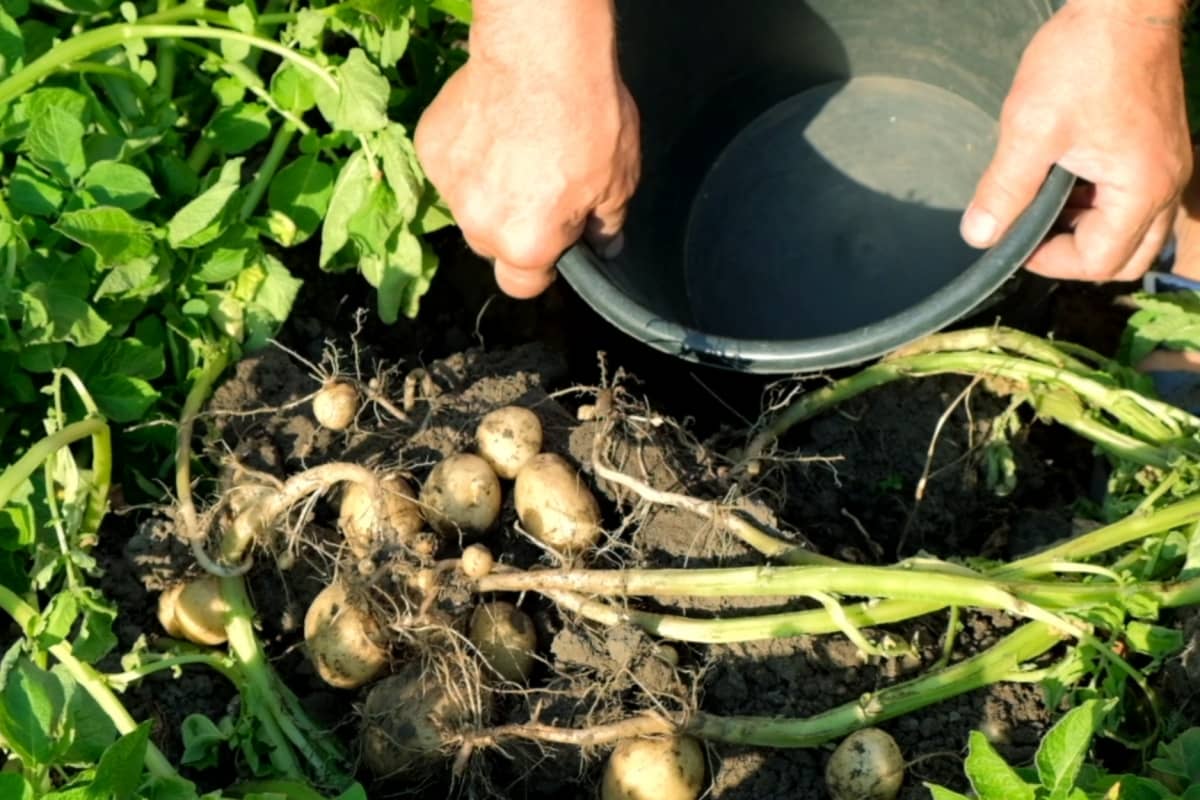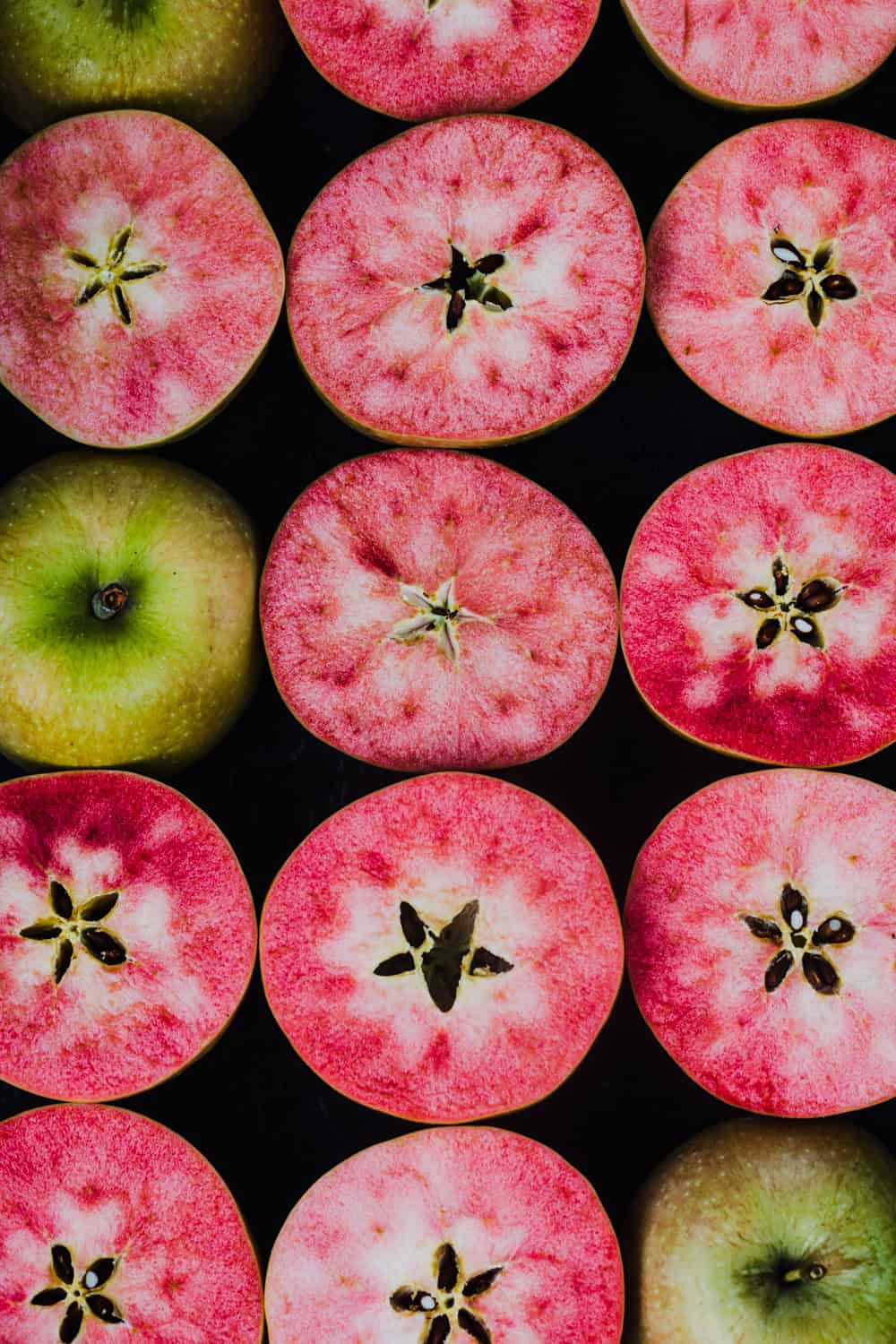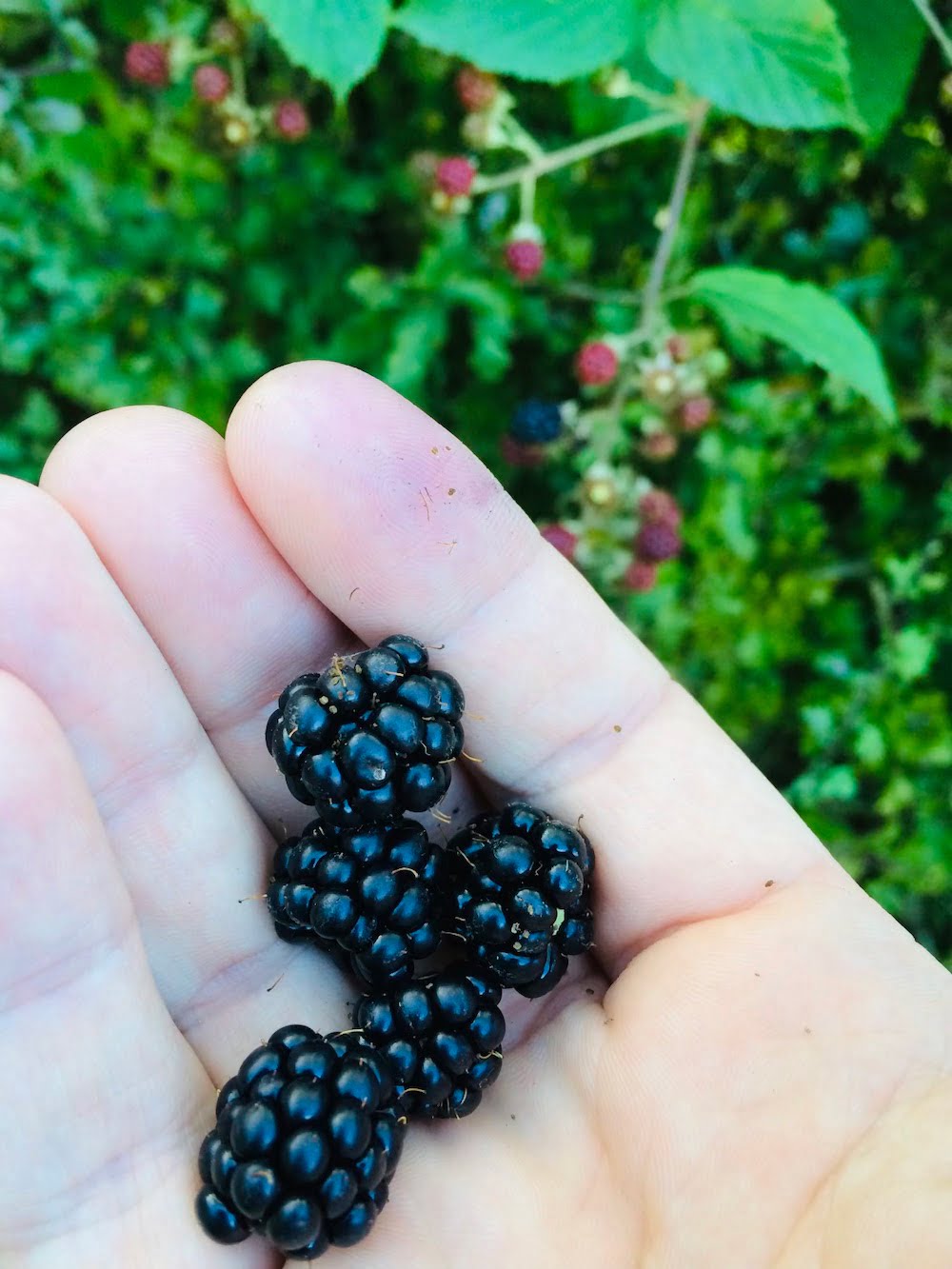In this article, you will explore the intriguing relationship between potatoes and manure. The question of whether potatoes thrive in manure has long fascinated researchers and gardeners alike. As potatoes are a staple crop in many regions, understanding the potential benefits or drawbacks of using manure can greatly impact agricultural practices. Through a careful examination of scientific studies and expert opinions, this article will examine the effects of manure on potato growth and offer insights into maximizing potato yields.
Soil Requirements for Potatoes
Acidic Soil
Potatoes thrive in slightly acidic soil with a pH level between 5.8 and 6.5. Acidic soil provides the ideal conditions for the efficient uptake of essential nutrients by potato plants. When the soil is too alkaline, the availability of important nutrients, such as nitrogen, phosphorus, and potassium, decreases significantly, thus affecting the overall growth and development of potato plants.
To ensure a suitable pH level for potatoes, it is crucial to regularly test the soil and make necessary adjustments if the pH falls outside the recommended range. This can be done by adding organic materials or specific soil amendments designed to lower the pH, such as sulfur or acidifying fertilizers.
Well-Draining Soil
Another key requirement for growing potatoes successfully is well-draining soil. Excessive moisture around the potato roots can lead to rotting, disease development, and poor tuber formation. The optimal soil texture allows for the proper movement of water, air, and nutrients within the soil profile.
If the soil in your growing area has poor drainage, it is important to take steps to improve it before planting potatoes. This can be achieved by incorporating organic matter, such as compost or peat moss, into the soil to increase its ability to hold onto moisture without becoming waterlogged.
Loamy Soil
Potatoes prefer loamy soil, which provides a balance between sand, silt, and clay particles. Loam soil retains adequate moisture without becoming overly saturated, drains well, and allows for good root development. This type of soil also offers excellent aeration, promoting the healthy growth of potato plants.
To create an optimal growing environment for potatoes, consider adding organic matter, such as compost or well-rotted manure, to improve the soil structure and enhance its water-holding capacity. This will help to maintain a consistent moisture level, ensuring that the potatoes receive the necessary nutrients for their proper growth and development.
Benefits of using Manure
Rich in Nutrients
One of the primary benefits of using manure for potato cultivation is its rich nutrient content. Manure contains essential elements like nitrogen (N), phosphorus (P), and potassium (K), as well as other micronutrients necessary for the healthy development of potato plants. These nutrients are released gradually as the manure breaks down, providing a sustained supply of vital elements throughout the growing season.
The organic matter in manure also improves the soil structure and fertility, aiding in nutrient retention and plant growth. When incorporated into the soil, manure becomes a valuable source of readily available nutrients, ensuring the potatoes receive the nourishment they need at each stage of their growth.
Improves Soil Structure
Manure acts as a soil conditioner, enhancing the structure and texture of the soil. When added to sandy or clay soils, manure helps to improve their water-holding capacity and aeration, creating an ideal growing environment for potatoes. The organic matter in manure binds together soil particles, resulting in better aggregation and improved drainage.
The improved soil structure offered by manure allows for a healthier root system, ensuring that the potato plants have optimal access to water, nutrients, and air. Additionally, the increased porosity of the soil promotes the development of beneficial microorganisms, which further contribute to the overall health of the potato plants.
Enhances Water Retention
Manure also plays a crucial role in water retention within the soil. The organic matter present in manure helps to increase the soil’s ability to retain moisture, preventing water runoff and reducing the frequency of irrigation needed. Adequate moisture availability is vital for the development of healthy potato plants and can significantly impact tuber yield.
By enhancing water retention, manure helps maintain a consistent soil moisture level, reducing the risk of water stress and promoting optimal growth conditions for potato plants. This is particularly important during periods of drought or dry weather, as the added organic matter aids in water conservation within the soil profile.
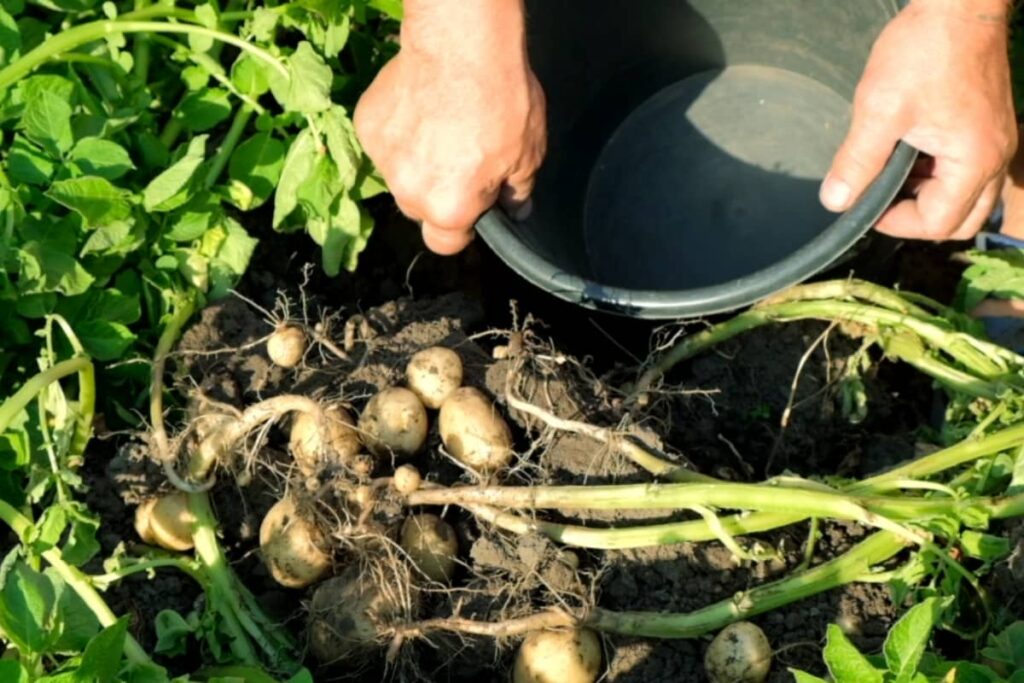
Manure Types
Cow Manure
Cow manure is one of the most commonly used types of manure in potato cultivation. It is readily available and provides a balanced nutrient profile, suitable for promoting healthy potato growth. Cow manure is rich in organic matter, nitrogen, and potassium, which are crucial for robust leaf and tuber development.
When using cow manure, it is essential to ensure that it has been properly composted or aged. Fresh cow manure can contain high concentrations of ammonia and pathogens, which may be harmful to potato plants. Composting for a minimum of six months or applying well-aged manure reduces the risk of potential nutrient imbalances and plant diseases.
Chicken Manure
Chicken manure is another popular option for potato growers. It is high in nitrogen, phosphorus, and potassium, making it an excellent source of nutrients for potato plants. However, chicken manure is also relatively high in soluble salts, which can be detrimental to potato growth if used excessively.
To avoid potential burn or root damage, chicken manure should be mixed with other organic materials, such as straw or compost, and applied in appropriate quantities. Prior to using chicken manure, composting or aging is recommended to reduce the salt content and ensure the release of nutrients in a manageable and controlled manner.
Horse Manure
Horse manure is often readily available and can be an excellent addition to potato-growing soils. It contains a good balance of nutrients, including nitrogen, phosphorus, and potassium, as well as organic matter that improves soil structure. Horse manure is typically less rich in nutrients compared to cow or chicken manure, but it still provides valuable benefits to the soil and potato plants.
Similar to other types of manure, horse manure should be well-aged or composted before use to ensure that any potential weed seeds or pathogens have been deactivated. Additionally, excessive use of horse manure can lead to an imbalance in soil nutrients, so it is important to follow recommended application rates.
Preparing the Soil with Manure
Appropriate Amounts
When applying manure to potato-growing areas, it is crucial to use the appropriate amounts to avoid nutrient imbalances or detrimental effects on plant growth. The recommended application rate of manure varies depending on the nutrient content, the type of manure used, and the quality and fertility of the soil.
As a general guideline, applying 2-4 inches of well-composted manure per 100 square feet of soil is often sufficient for most potato varieties. However, it is advisable to conduct a soil test before application to determine the specific nutrient requirements of the soil and adjust the manure quantity accordingly.
Mixing Manure with Soil
To ensure an even distribution of nutrients, it is essential to thoroughly mix the manure with the soil. This can be achieved by using a rototiller or by hand, incorporating the manure to a depth of about 6-8 inches. By mixing the manure with the soil, nutrient availability is improved, and potential nutrient stratification is minimized.
Mixing manure with the soil also aids in better water penetration and root development. The organic matter in the manure helps to bind with individual soil particles, improving the overall structure and porosity of the soil, which benefits the growth of potato plants.
Timing of Application
The timing of manure application is crucial for maximizing its benefits and ensuring optimal potato growth. Ideally, manure should be incorporated into the soil several weeks before planting potatoes. This allows time for the manure to decompose, release its nutrients, and integrate fully with the soil.
If immediate incorporation is not possible, it is recommended to apply the manure at least two weeks before planting. This gives the manure sufficient time to begin breaking down and reduces the risk of nitrogen tie-up, where the initially high nitrogen content of the manure hinders the availability of other essential nutrients.
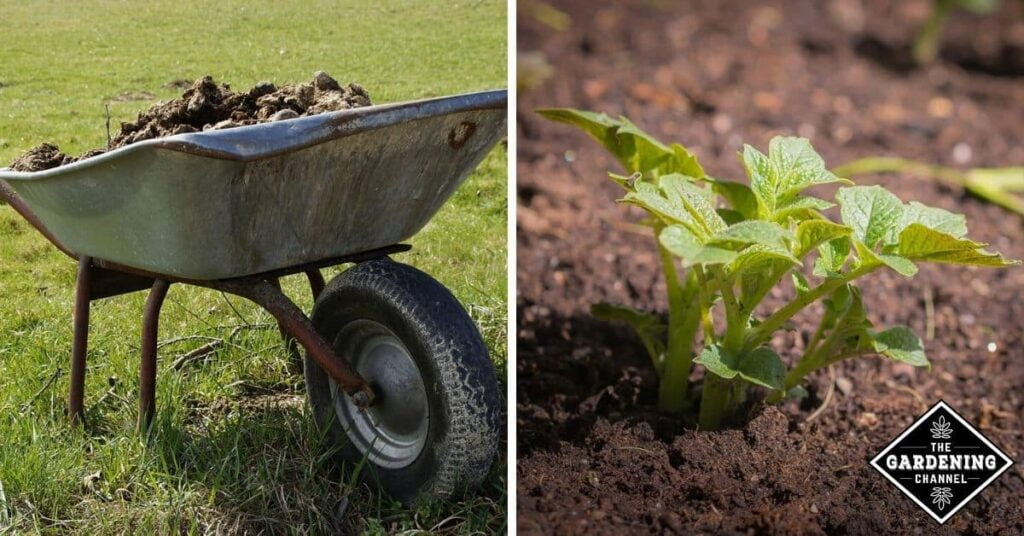
Manure vs. Fertilizer
Organic vs. Inorganic
Manure and fertilizer are two common sources of nutrients for potato cultivation, each with its own advantages and considerations. Manure is an organic source of nutrients, derived from animal waste, while fertilizers are typically inorganic, manufactured products.
Organic manure provides a more balanced and slow-release supply of nutrients compared to fertilizers. The organic matter in manure enhances soil structure, improves water retention, and promotes beneficial microbial activity. Fertilizers, on the other hand, offer precise control over nutrient ratios and are readily available to plants.
Slow Release of Nutrients
One of the key benefits of using manure over fertilizers is its slow-release nature. Nutrients in manure are released gradually as the organic matter decomposes, reducing the risk of nutrient leaching or runoff. This slow-release characteristic ensures a steady supply of nutrients to potato plants over an extended period, supporting their continuous growth and development.
In contrast, fertilizers provide a rapid and immediate nutrient boost to plants. While this can be advantageous in certain situations, such as correcting severe nutrient deficiencies, the fast nutrient release may lead to imbalances or environmental issues if not applied correctly.
Environmental Impact
Another important consideration when comparing manure and fertilizers is their environmental impact. Manure is a sustainable and renewable resource that contributes to soil health and fertility. When used properly, it can minimize the need for synthetic fertilizers, reducing the potential for water pollution and nutrient runoff.
Fertilizers, on the other hand, can have a higher risk of environmental contamination when misused or overapplied. Their chemical composition and rapid-release nature make them more prone to nutrient leaching or runoff, which can contribute to water pollution and ecosystem damage.
Potential Risks of using Manure
Chemical Residues
The potential presence of chemical residues in manure is a concern for potato growers. If animals have been exposed to pesticides, herbicides, or other chemical treatments, their waste products may contain traces of these substances. When manure contaminated with chemical residues is applied to potato-growing areas, it can potentially affect plant growth and introduce harmful compounds into the soil.
To mitigate this risk, it is essential to source manure from reliable and trusted suppliers who follow strict guidelines regarding animal feed and management practices. Additionally, composting or aging the manure can help reduce and degrade any potential chemical residues, making it safer for use in potato cultivation.
Excessive Nutrient Levels
While manure provides valuable nutrients to potato plants, excessive application can lead to nutrient imbalances that negatively impact their growth. When plants receive an excess of certain nutrients, such as nitrogen, phosphorus, or potassium, it can lead to nutrient toxicity, imbalanced plant development, or environmental damage.
To avoid these issues, it is crucial to follow recommended application rates for manure and conduct regular soil testing to monitor nutrient levels. Adjustments in fertilization practices can then be made based on the specific needs of the soil and the potato plants.
Soil pH Imbalance
Manure can potentially influence the pH of the soil, leading to a pH imbalance that affects nutrient availability for potato plants. Certain types of manure, such as poultry manure, have a higher pH, which can increase the alkalinity of the soil when overapplied. This alkaline condition may limit the availability of essential nutrients, leading to nutrient deficiencies in potato plants.
To address this issue, it is crucial to monitor and adjust the pH of the soil as needed. Conducting regular soil tests and incorporating appropriate amendments, such as sulfur or acidifying fertilizers, can help maintain the optimal pH range for potato cultivation.

Optimal Timing for Applying Manure
Pre-Planting
Applying manure before planting is a common practice in potato cultivation. Pre-planting application allows the manure to slowly release nutrients as it decomposes, providing a continuous supply throughout the potato’s growing season. This timing also allows for proper mixing with the soil and reduces the risk of nutrient tie-up.
To prepare the soil for planting, incorporate the manure into the top 6-8 inches of the soil, ensuring an even distribution. This will help create a nutrient-rich planting bed and establish favorable growing conditions for the potatoes.
Mid-Growth
Mid-growth applications of manure can provide additional nutrients to support the development of potato plants during their active growth phase. Applying manure when the plants are at a size of 6-8 inches can supply a nutrient boost and promote healthy foliage growth, tuber enlargement, and overall plant vigor.
When applying manure during the mid-growth phase, take care to avoid root damage by carefully working the manure into the soil around the base of the plants. This will help ensure the nutrients are readily available to the growing potatoes.
Late Season
Late-season manure application can be beneficial for potato plants nearing maturity. As the plants approach the end of their growth cycle, additional nutrients from manure can support the final development and maturation of the tubers. This late-season boost can enhance potato quality, yield, and storability.
When applying manure late in the growing season, prevent direct contact between the manure and the developing tubers to minimize the risk of any potential contamination. Apply the manure to the soil surface, allowing it to gradually incorporate through natural processes.
Other Soil Amendments for Potatoes
Compost
Compost is a valuable soil amendment for potato cultivation, providing a range of benefits similar to those of manure. Compost enriches the soil with organic matter, improves soil structure, enhances water retention, and supplies essential nutrients for plant growth. It can be used in conjunction with manure or as a standalone amendment, depending on the specific needs of the soil.
To incorporate compost into the soil, mix it thoroughly to ensure an even distribution. Application rates can vary depending on the compost quality and soil condition, so conducting a soil test is recommended to determine the appropriate quantity for your potato-growing area.
Mulch
Mulching with organic materials can help conserve soil moisture, regulate soil temperature, suppress weed growth, and improve overall soil health. Applying a layer of organic mulch, such as straw or wood chips, around the base of potato plants can provide these benefits, resulting in improved plant growth and tuber development.
When mulching potatoes, be mindful of proper application techniques. Apply a layer of mulch around 2-4 inches thick, taking care not to cover the emerging shoots or growing tubers. This will prevent smothering or moisture damage while still reaping the advantages of mulch.
Green Manure
Green manure involves growing specific cover crops in the potato-growing area to improve soil fertility and structure. These cover crops are typically sown during the fallow period or between potato crop rotations. They help suppress weeds, prevent erosion, fix nitrogen in the soil, and enhance soil organic matter content.
Common green manure crops suitable for potato-growing areas include legumes like clover or vetch, which have the ability to fix atmospheric nitrogen and enrich the soil. Incorporating the green manure crop into the soil before it flowers or sets seed can provide significant benefits to subsequent potato crops.
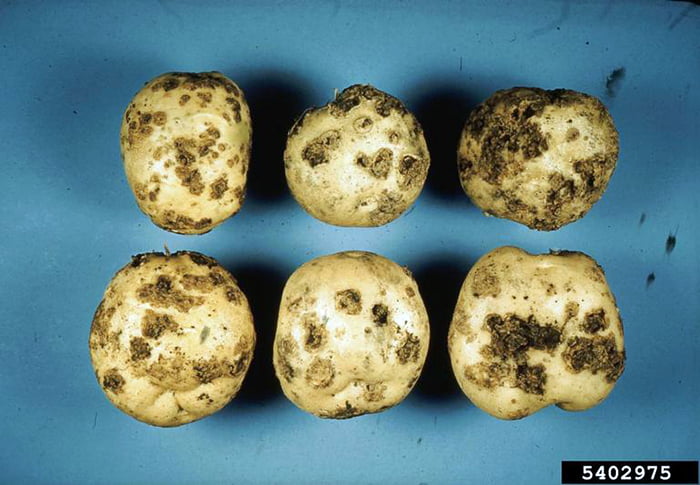
Considerations for Different Potato Varieties
Earlies vs. Maincrops
Different potato varieties have varying soil preferences and growing requirements. Earlies, also known as new potatoes, are typically planted earlier in the season and have a shorter growing period. They prefer well-draining soil with higher organic matter content to ensure a good balance of moisture and nutrients.
Maincrop potatoes, on the other hand, have a longer growing season and require more extensive soil preparation. They benefit from fertile, well-draining soil with ample organic matter. Preparing the soil with manure, compost, or other suitable amendments is crucial to provide the necessary nutrients and optimal growing conditions for maincrops.
Specialty Varieties
Specialty potato varieties, such as fingerling potatoes or colorful varieties like purple or blue potatoes, may have specific soil preferences or nutrient requirements. It is important to research and understand the specific needs of these varieties before planting and prepare the soil accordingly.
Some specialty varieties tend to prefer slightly acidic soil, while others thrive in more alkaline conditions. Conducting a soil test and adjusting the pH as needed can help ensure that the soil provides the ideal environment for these unique potato varieties.
Determining Specific Soil Needs
To determine the specific soil requirements for potato cultivation, conducting a soil analysis is highly recommended. A thorough soil test will provide valuable information about the nutrient content, pH level, and overall fertility status of the soil.
A soil test can be conducted through a reputable laboratory or with the assistance of local agricultural extension services. The results will guide you in making informed decisions about the necessary amendments, including manure, to address any nutrient deficiencies or imbalances in your potato-growing area.
Conclusion
Proper soil preparation and nutrient management are essential for successful potato cultivation. Understanding the specific soil requirements for potatoes, the benefits and considerations of using manure as a soil amendment, and the optimal timing for application will help ensure healthy plant growth, abundant yields, and sustainable farming practices.
By selecting the appropriate manure type, considering other soil amendments, and catering to the unique needs of different potato varieties, you can create an optimal growing environment that promotes the development of robust potato plants and high-quality tubers. Through responsible and informed soil management practices, you can maximize the potential of manure, enhance soil health, and achieve successful potato production.
